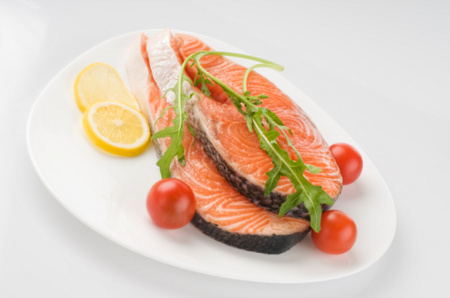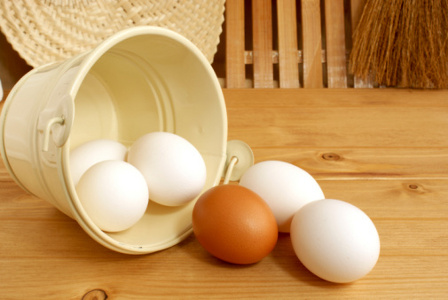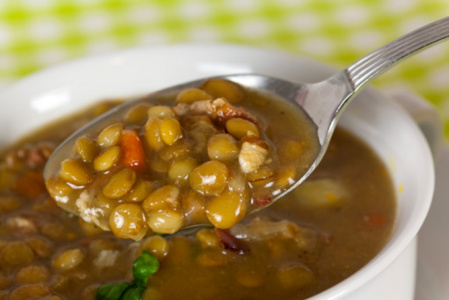Foods That May Alleviate ADHD
0 Comments
What Research Indicates
Attention deficit hyperactivity disorder (ADHD) is a childhood disorder that can continue through adolescence and into adulthood. The symptoms include difficulty staying focused, difficulty controlling behavior and hyperactivity. The exact cause is unknown, although research suggests that genetics plays a major role. The National Institute of Mental Health points to scientific research that looks at environmental factors, brain injury and nutrition as possible contributing factors to ADHD. Foods that boost cognitive function may alleviate ADHD symptoms. Photo: Getty Images

Salmon, Tuna and Halibut
Fish, such as salmon, tuna and halibut, that thrive in cold waters are rich sources of omega-3 fatty acids. They are considered to be essential fatty acids necessary for brain function and normal growth and development. Photo: Getty Images

Oatmeal and Whole-grain Cereals
Omega-3 fatty acids appear to be important for memory, performance and behavioral function. Oatmeal and whole-grain cereals with limited amounts of added sugar are good sources of omega-3 fatty acids, vitamins, minerals and dietary fiber. There is inconclusive evidence to support the idea that refined sugar contributes to ADHD. Photo: Getty Images
_0.jpg)
Walnuts
The high concentration of omega-3 fatty acids in walnuts has several health benefits including the promotion of better cognitive function. Nuts are a healthy addition to breakfast cereal or as a midday snack. Walnuts and other nuts such as almonds, hazelnuts and cashews, contain magnesium, which is essential to cognitive function. Photo: Getty Images

Apples and Pears
Fresh fruits, including apples and pears, are complex carbohydrates that provide sustained energy for the brain. Glucose is converted from carbohydrates and is the only energy source normally used by brain cells. According to the Franklin Institute, too much sugar or refined carbohydrates at one time deprive the brain of glucose. This compromises the brain’s ability to concentrate, remember and learn. Photo: Getty Images

Eggs
Starting the day with a meal that is low in fat, high in protein and low in carbohydrates and sugar will help achieve peak mental performance. Proteins found in foods such as eggs are a major source of amino acids. Amino acids are the building blocks used by the body to manufacture neurotransmitters. Jon Bennett, author of the book, “3 Steps to Conquering ADD-ADHD”, makes the case that some of the symptoms associated with ADD and ADHD can be linked to deficient neurotransmitter activity. Egg yolks contain choline, which is important in the production of the neurotransmitters in the brain that regulate behavior, mood and memory. Photo: Getty Images

Spinach
Green leafy vegetables, such as spinach, kale and collard greens, are another source of choline and omega-3 fatty acids. Choline helps with concentration, alertness and improves cognitive performance. Photo: Getty Images

Lentils and Kidney Beans
Lentils and other beans such as kidney beans, chickpeas and black eyed peas, are good sources of complex carbohydrates, protein, omega-3 fatty acids and thiamine. Thiamine is important in the synthesis of choline.
Sources:
National Institute of Mental Health: Attention Deficit Hyperactivity Disorder
The Role of Essential Fatty Acids in ADHD by Anthony Kane, M.D.
The Franklin Institute: Nourish: Carbohydrates Fuel Your Brain
3 Steps Conquering ADD-ADHD: Nutrition and Brain Function: The Importance of Protein, Linus Pauling Institute: Choline
Article by Maryann Gromisch
Photo: Getty Images
Add a CommentComments
There are no comments yet. Be the first one and get the conversation started!